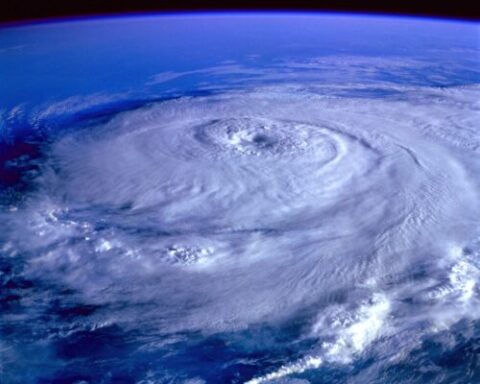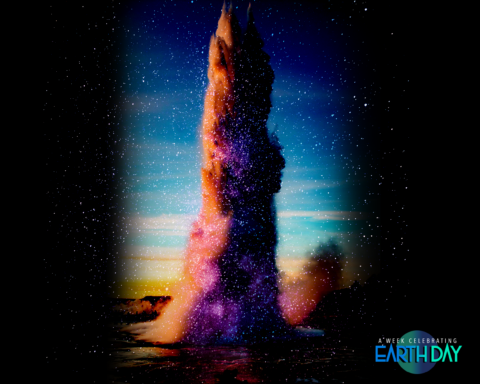Climate Change in Scripture & WALL-E

Looking for reasons that Christians should be concerned about climate change? Just open your Bible to where it all begins. The two creation stories that start the book of Genesis are different narratives, but both describe a Creator who crafts the world in a certain way, one who loves creation and calls it good. These stories reveal to us something of how our spiritual ancestors understood and related to the world around them – the world that we’ve since inherited. In the first story (Genesis 1:1 – 2:4a), everything God creates is called good. Humankind is made in God’s image and given dominion over this good creation; we are told to fill the earth and subdue it. Part of being made in God’s image, it seems, involves the responsibility of stewardship of and care for this creation of which we are a part, its goods and resources our fellow creatures. In the second story (Genesis 2:4b – 25), the created order is the home that God carefully crafted for humanity. We again are designated as the caretakers of the earth, put in the garden of Eden “to till it and keep it.” This second story adds another significant piece: humankind is, in fact, formed from the dust of the earth. We have been created out of the earth itself, and to the earth we will return.
Taking care of our planet, of course, involves more than simply teaching these ancient stories of creation. It is a scared duty, which our spiritual ancestors took seriously and handed down to us in Scripture and the traditions of the Church. Now, millennia later, science is telling us in concrete terms what these stories in Scripture sought to convey: our actions have a significant impact on the well-being of our planet. Global warming and other environmental crises are showing how strong and how negative that impact can be.
___________________________________________
I believe that these creation accounts set in the distant past and this film set in the distant future are telling the same story.
___________________________________________
We are past the time when we could turn a blind eye, if such a time even existed in the first place. We can’t keep draining the earth of its resources, claiming that we are “subduing it” or “exercising our dominion.” We must remember that we’re not just taking care of the planet for ourselves—we’re caring for the earth that has been entrusted to us for generations to come. We’re tilling and keeping the earth for the sake of all of creation – not just humanity.
 It’s clear that this responsibility, and our failure to live up to it, pervade our cultural consciousness. Take the 2008 Pixar film WALL-E. Set in the distant (or is it that distant?) future, the basis of the film is that humanity has trashed the planet — literally — and fled to the stars in giant spaceships, leaving behind small robots to clean up the mess. The last of these WALL-E robots befriends a robot new to the planet (EVE) and accidentally helps her find what she has been seeking: a small plant that has somehow survived 700+ years of environmental devastation.
It’s clear that this responsibility, and our failure to live up to it, pervade our cultural consciousness. Take the 2008 Pixar film WALL-E. Set in the distant (or is it that distant?) future, the basis of the film is that humanity has trashed the planet — literally — and fled to the stars in giant spaceships, leaving behind small robots to clean up the mess. The last of these WALL-E robots befriends a robot new to the planet (EVE) and accidentally helps her find what she has been seeking: a small plant that has somehow survived 700+ years of environmental devastation.
WALL-E follows EVE as she takes the plant to a huge spaceship where humans have lived since abandoning the trash-filled planet. In this new reality, humans are not only disconnected from the earth, but have also become disconnected from one another. They go about their daily business with little to no interaction with one another, relying on robots for everything from preparing their meals-in-a-cup to depositing their atrophied and obese bodies back in their personal hover chairs when they fall.
___________________________________________
Even after multiple generations and 700 years of disconnection from the earth, the human heart recognizes “home” and feels the call of an age-old responsibility.
___________________________________________
As WALL-E and EVE try to deliver the plant to the captain, they begin to wake people up to see the world they’ve created around them. What was designed to be a paradise has become a prison. Somewhere deep inside of them, a sacred recognition is stirred. As the Captain of the ship proclaims with joy, “We can go back home for the first time!” Through the combined efforts of WALL-E, EVE, and the humans newly freed from their chairs, humanity returns to earth, and a new generation of people step onto their home soil for the first time.
 “We can go back home for the first time.” Even after multiple generations and 700 years of disconnection from the earth, the human heart recognizes “home” and feels the call of an age-old responsibility. In a sad twist of irony, this new generation of humans, while literally floating above the environmental crisis their ancestors created, had managed to re-produce the same pattern of over-consumption and disconnection. It is only through re-claiming earth as home that they are able to change their behavior. When they reconnect to their home, they break down the floating-chair barriers that divide them from each other and the earth and step out into a garden of possibilities.
“We can go back home for the first time.” Even after multiple generations and 700 years of disconnection from the earth, the human heart recognizes “home” and feels the call of an age-old responsibility. In a sad twist of irony, this new generation of humans, while literally floating above the environmental crisis their ancestors created, had managed to re-produce the same pattern of over-consumption and disconnection. It is only through re-claiming earth as home that they are able to change their behavior. When they reconnect to their home, they break down the floating-chair barriers that divide them from each other and the earth and step out into a garden of possibilities.
I believe that these creation accounts set in the distant past and this film set in the distant future are telling the same story. The earth is sacred space, and humans have been called as caretakers of this space, even if they leave the garden of Eden or take off in a spaceship. Contrary to more traditional, Augustinian readings of Genesis 3 as a story of “the Fall”, several Biblical commentators have come to read the story of Adam and Eve eating from the Tree of Knowledge is an allegory for growing up, maturing into the understanding that we live in a world that contains both good and evil and requires us regularly to choose between the two. Commentator E. A. Speiser, in the Anchor Bible commentary on Genesis, likens the “pre-Fall” Eve and Adam as reflecting “the childhood of [hu]mankind itself” [p. 27].
The humans in WALL-E exist in this same state of child-like innocence, with their floating chairs and sippy cups. They lack any awareness of their responsibility and moral agency – until the Captain lays eyes on the small seedling that EVE brings to him, a remnant of the creation of which he, too, is apart. Like Adam and Eve, his eyes are opened to the realities of good and evil, and of his own responsibility. He takes his first precarious steps into the moral realm, defeating the “auto-pilot” (the film’s antagonist) and doing what he believes is good: returning home to earth.
___________________________________________
It’s hard to take that first step into the world, whether from a garden or a spaceship.
___________________________________________
It’s hard to take that first step into the world, whether from a garden or a spaceship. Consciously stepping into the world means accepting a tremendous responsibility, one that must be learned and taught and passed on to future generations. In the Genesis narrative, Adam and Eve’s son Cain becomes a farmer; in WALL-E, babies from the spaceship in Buy-N-Large outfits help plant and water the earth’s new seedling. Even as we recognize that future generations will make mistakes, our responsibility to impart to them what we know of creation care remains. We, like the characters in WALL-E, find ourselves facing a trashed planet, and yet one where the potential for new life miraculously remains
 The earth, as the Captain in WALL-E so aptly recognized, is our home. We’ve been given stewardship of the earth and called to till and keep it for future generations. And so, we as individuals and as communities of faith have a decision to make: will our daily practices be governed by over-consumption or by our call to stewardship?
The earth, as the Captain in WALL-E so aptly recognized, is our home. We’ve been given stewardship of the earth and called to till and keep it for future generations. And so, we as individuals and as communities of faith have a decision to make: will our daily practices be governed by over-consumption or by our call to stewardship?
Several authors in this issue of Unbound describe environmental problems and realities related to climate change and point to how we can act to change those realities. I encourage you to keep reading, to learn about the realities our planet faces, and to take action so that our home will continue thriving for generations to come.
*****
AUTHOR BIO: Rev. Emily Morgan graduated from Princeton Theological Seminary in 2013 and works as the Young Adult Ministry Specialist with the Presbyterian Mission Agency. She’s been a sci-fi geek since middle school and loves to mix pop culture and religion.
Read more articles in this series!





Unbound Social